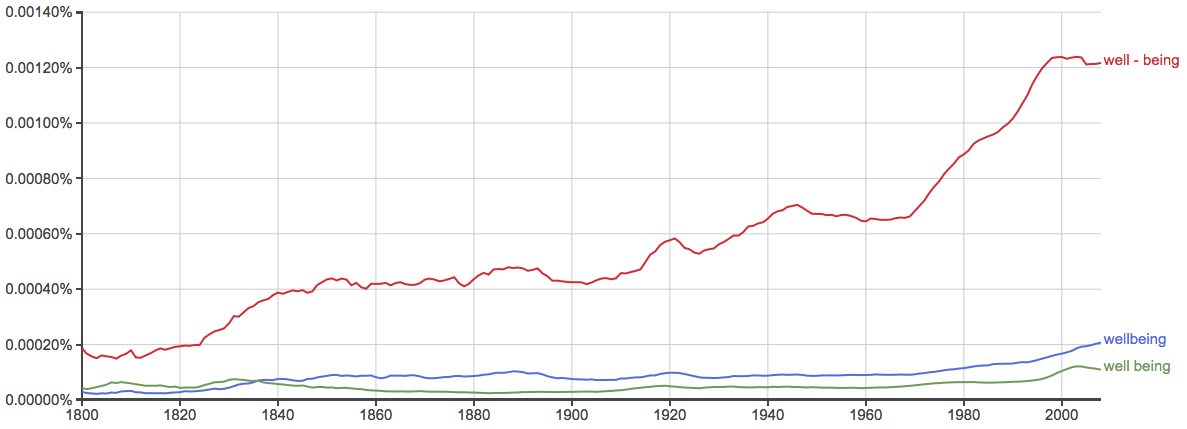Since English has been spoken for hundreds of years, some constructions and word combinations that were invented several centuries ago seem odd today. The noun well-being seems like it could be formed as a compound, like wellbeing, or left as separate words, as well being, but despite its length history, only one spelling has ever been standard.
The word pairing well-being has been in use since the 16th century, and, ever since the beginning, there has only been one standard spelling.
Continue reading to find out.
Which is Correct? Wellbeing or Well-Being?
In this post, I will compare wellbeing vs. well-being. I will outline which of these spellings is correct and guide you on its correct use.
Plus, I will show you a helpful memory tool that will help you choose well-being or wellbeing in your own future writing.
When to Use Well-being
 What does well-being mean? Well-being is a noun. It describes good health and good fortune, or more generally, wellness.
What does well-being mean? Well-being is a noun. It describes good health and good fortune, or more generally, wellness.
A considerate person acts to promote the well-being of others, and doctors practice medicine to prolong and enhance the well-being of patients.
The sentences below are examples of well-being in context,
- “We have to consider the well-being of the child when making a foster home placement,” said the director.
- Well-being is a function of a healthy lifestyle, a positive view of one’s place in the world, and the support of valued peers.
Well-being is an old word. Merriam-Webster notes its first recorded use in 1561, nearly five centuries ago. At this point in history, well-being is the established and predominant spelling (see below) and a well-established part of the English language.
When to Use Wellbeing
 What does wellbeing mean? Wellbeing is a misspelling of well-being. Despite its long history, well-being has never morphed into a single word and remains hyphenated to this day.
What does wellbeing mean? Wellbeing is a misspelling of well-being. Despite its long history, well-being has never morphed into a single word and remains hyphenated to this day.
Some writers do not hyphenate well-being, separating the two words into well being. This, too, is nonstandard and most style guides advise against it. The AP Stylebook and Garner’s Modern English Usage, for instance, both state that well-being is hyphenated.
This, however, doesn’t mean these words will never appear adjacent to one another in sentences.
For example,
- Alex Rodriguez did well being a shortstop for the Seattle Mariners, but when be played third base for the New York Yankees, he came to be perceived as a villain.
As you can see, well and being appear next to each other in the sentence above. In this sentence, however, the words do not carry the same meaning as the hyphenated well-being.
Additionally, the graph below, which charts well-being vs. wellbeing vs. well being over time, illustrates the points made above: well-being is much more common than wellbeing and well being in modern English.

This graph is not scientific (it only looks at books published in English since 1800), but it clearly illustrates a dominant long-term trend.
Trick to Remember the Difference
The hyphenated well-being is the standard form of this noun. The single-word wellbeing and the two-word well being are not accepted variants.
Remember that well is an adjective and being is a verb. To form a noun, they must be hyphenated; well-being is not a compound word.
Remember that when words that are different parts of speech are combined, they are hyphenated. The hyphen in well-being is your clue that it is the correct version of this word.
Summary
Is it wellbeing or well-being? Well-being is a noun that means good health or good fortune.
- Well-being is a synonym of the words wellness and welfare.
- Wellbeing and well being are nonstandard variants of this noun, and should be avoided.
To summarize succinctly,
- Use well-being
- Avoid wellbeing or well being.
Contents
